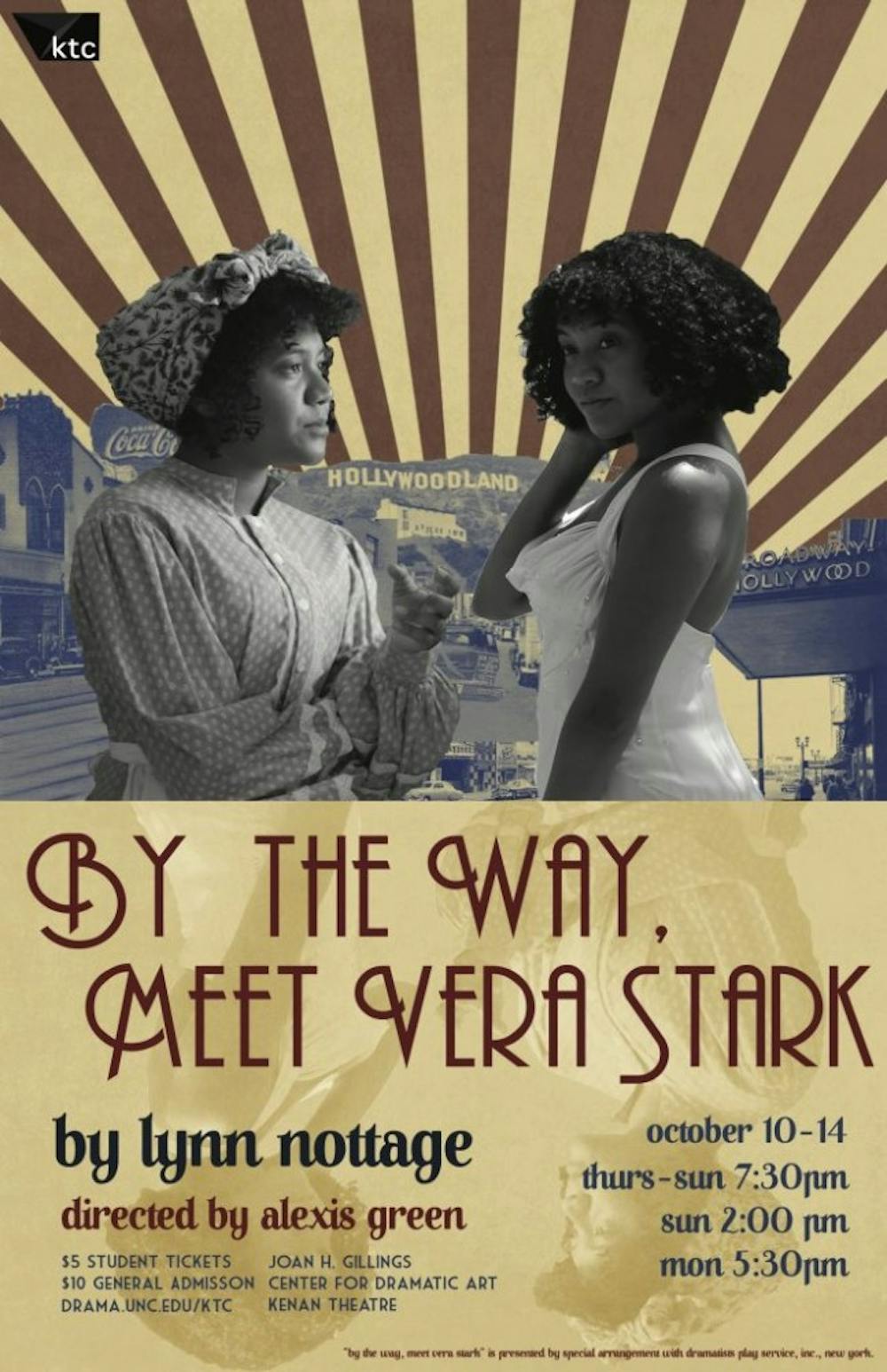Lynn Nottage’s play "By the Way, Meet Vera Stark" is coming to the Kenan Theatre Company, bringing a timeless discussion of race and gender relations.
The play, which is in honor of Lillian Chason, is directed by Alexis Green and is running from Oct. 10-14. Tickets for students are $5 and public tickets are $10.
The play follows the plight of a young Black woman trying to break into the entertainment industry and highlights the troubles she faces based on both her race and gender, Green said.
“Vera Stark kind of plays into the stereotype that Hollywood has boxed in Black women and Black people in order to make that break into the industry, and that sets the foundation of her career,” Green said. “The question is, do you do anything? Is it all worth it in the end? Is every sacrifice worth it no matter what the cost?”
Producing Director Jared Bowen-Kauth said although the play covers serious topics, they are complemented and accentuated by humor.
“For me, bringing this play to an undergraduate theater community, I think creates a lot of opportunity for conversation,” Green said. “I think the way this play draws you in with the spitball comedy nature is a good attraction for people who weren’t necessarily interested in being inside of the theater.”
While the play primarily takes place in the 1930s and 1970s, issues that Stark faces are still common in modern times, said Kayla Brown, the actress who plays Vera Stark.
“Race relations are not perfect now,” Brown said. “There’s still a lot of trouble in modern times with accepting Black women for who they are, and not using them as a commodity and letting them play roles that aren’t stereotypical.”
Stark, although fictional, is based on actress Theresa Harris, who faced many challenges due to her race and gender, said Bowen-Kauth.




